Wizard Of Oz Movie Analysis - A Story of Religion, Theosophy and Becoming Your Own God
Franco Vendotto is an Intuitive Coach that uses the modalities of Astrology, Numerology, and Divination Cards to help you Know Thyself. If you are interested in a Reading or Birth Analysis, please email: francovendotto@gmail.com
The #wizardofoz is a story about Freedom, Religion, and possibly the realization that you are your own God. The fact that so many of you can recall exact details and dialogue from this movie which some of you haven’t seen it since your childhood, indicates that the themes discussed in The Wizard of Oz are much more cerebral than they would appear.
The Wizard of Oz has become compulsory viewing and is considered one of the most iconic cinematic works ever made.
The movie was released in 1939 and was adapted from a novel by author L. Frank Baum written in 1900. Now to fully understand the philosophy hidden in plain sight within the film Wizard of Oz, you must understand the life of its author.
Born in upstate New York in 1856, L. Frank Baum was a businessman, author and filmmaker. Though raised as a devout Methodist, L. Frank Baum with his wife joined the Theosophical Society in 1892 at the encouragement of his mother-in-law.
For those not familiar with Theosophy or the Theosophical Society, the word literally means “divine wisdom”
#theosophy is a belief system established in the United States during the late 1800s by Helena Blavatsky. Theosophy draws its teachings from her writings, mainly, The Secret Doctrine. It is important to note that Theosophists and Blavatsky herself would not categorize the system as a religion per se.
According to Theosophy, the purpose of human life is the spiritual emancipation of the soul. In her book, The Voice of the Silence, Blavatsky said that within each individual human there is an eternal, divine facet, which she referred to as "the Master", the "inner God", and the "higher self". She promoted the idea that uniting with this "higher self" results in wisdom.
We are introduced to #dorothy who lives on a farm with her Aunt and Uncle. Like many children’s stories, she has no parents. This is a similar trope in many Disney movies where the parents are either non-existent or pass away at the beginning of the story.
Very early on in the movie we hear the famous song, “somewhere over rainbow”. Now to set this up, it is insinuated that Dorothy is getting into trouble and fantasizes about living in a far off place, a place you can’t get to by boat or train. Now right before Dorothy begins singing that song, she says “its far far away, behind the moon”. Behind the moon? Like, the dark side of the moon? This infamous album cover by Pink Floyd clearly shows an allusion to this iconic film and has been the subject of many conspiracies for decades. And yes, I have played the movie and the album at the same time and do not believe for a second that Pink Floyd didn’t do this intentionally.
It's within the lyrics of the song “somewhere over the rainbow” that we find one of the main themes of the movie.
The rainbow is a bridge into another world and another way of living. In this world, freedom is paramount. Just like in the greatest movie of all time, Eyes Wide Shut, the rainbow, is a bridge that Dr Bill Hartford, the Tom Cruise character, will cross and enter into another world. In both movies, the new world is a far cry from the boring world you leave behind. In a lot of ways, the new world feels like a dream. Again, the theme of a dream is very similar to how Stanley Kubrick directed Eyes Wide Shut as Tom Cruise goes through his dream like voyage into the underworld.
Kubrick alluded to the rainbow theme several times in Eyes Wide Shut. In one scene, the Tom Cruise character is approached by 2 women at a Christmas party and is encouraged to go where the rainbow ends.
Now Theosophy is not without its detractors. Critics argue that If one reads The Secret Doctrine, it quickly becomes apparent that Blavatsky harbored an animosity towards humanity’s worship of personal gods and reserved a special hostility towards the Abrahamic faiths’ worship of Yahweh or Jehovah as their one God.
Now that you have a better understanding of L Frank Baum’s beliefs, you can understand where his mind was when he wrote Wizard of Oz in 1900.
-
 2:00:17
2:00:17
SNEAKO
9 hours agoSNEAKO X LAUREN CHEN
79.8K49 -
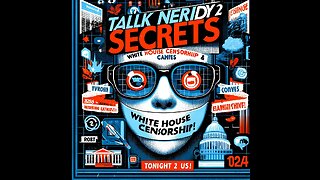 1:12:09
1:12:09
Talk Nerdy 2 Us
7 hours ago🚨Cyber Siege: From White House Scandals to Global Cyber Threats 🚨
42.3K15 -
 26:49
26:49
Alexis Wilkins
14 hours agoBetween the Headlines with Alexis Wilkins: Michael Cohen on Tik Tok, Free Speech, AR Lectern, FDNY
45.8K33 -
 1:53:34
1:53:34
Fresh and Fit
1 day agoSulaiman Ahmed And Destiny Debate Israel Palestine Conflict!
182K331 -
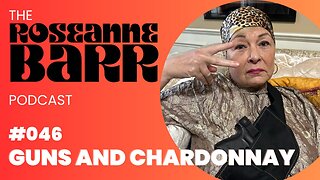 1:35:13
1:35:13
Roseanne Barr
12 hours ago $12.26 earnedGuns And Chardonnay | The Roseanne Barr Podcast #46
76.1K128 -
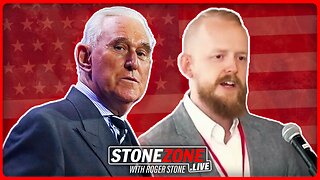 58:25
58:25
The StoneZONE with Roger Stone
10 hours agoWill America’s Population Die? Is America Caught In A Death Spiral? Kevin Dolan Enters The StoneZONE
57.1K45 -
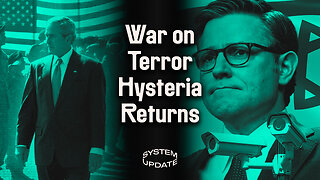 1:21:14
1:21:14
Glenn Greenwald
11 hours agoPost-9/11 "Terrorism" Hysteria Returns With a Vengeance | SYSTEM UPDATE #266
93K267 -
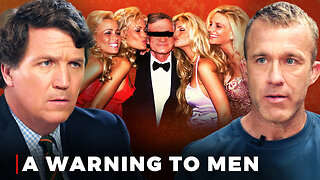 1:09:36
1:09:36
Tucker Carlson
10 hours agoAdvice to Men: Reject Sex, Parties, and Fame. Embrace God Instead.
148K221 -
 2:39:51
2:39:51
ZeroHedge
10 hours agoThe Great Crypto Vs Gold Debate
52.5K25 -
 2:14:33
2:14:33
The Quartering
17 hours agoThe Heartbreaking State Of Men! w/ Better Bachelor
82.1K59